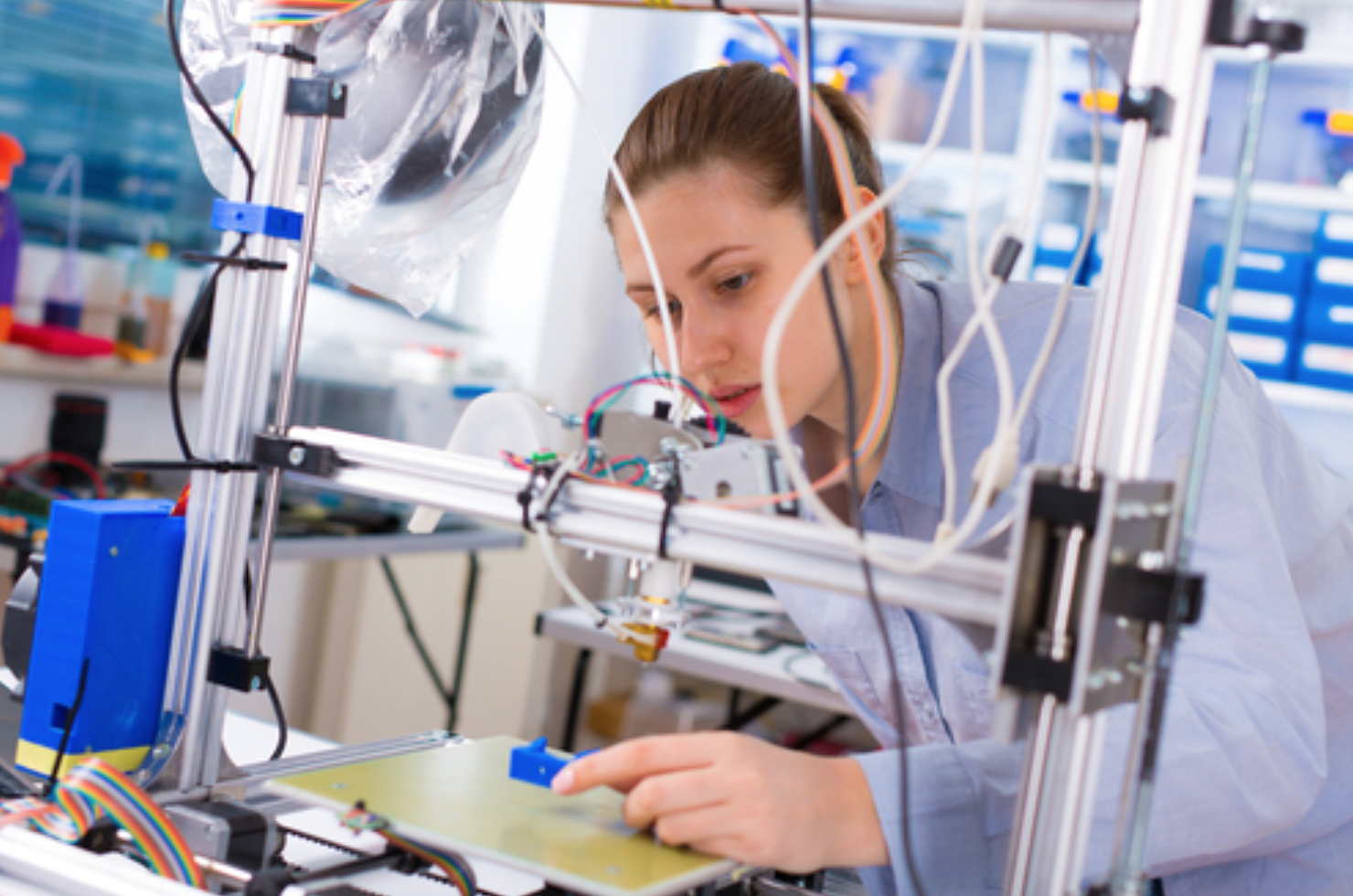3 Ways Millennial Entrepreneurs Are Changing Manufacturing

Markforged founder and CEO Greg Mark grew up taking apart machines for fun, from VCRs to blenders to bicycles, says Industry Week. But he didn’t learn computer science until later in his career, so when he started hiring recent college graduates to help him with his 3-D printer manufacturing startup, he discovered they were approaching problems in new ways he hadn’t considered. He had planned on taking part measurements with micrometers and entering them in Excel, but his Millennial engineers told him these measurements could be taken automatically by using sensors. This type of input helped Markforged quickly become one of the most disruptive firms in the 3-D printing industry, with 300 percent year-over-year sales growth at the beginning of 2018.
Markforged is one of the growing number of manufacturing firms to benefit from input by Millennial entrepreneurs. Here’s a look at three ways Millennials are tapping into manufacturing and changing the industry.
Digitizing the Supply Chain
One challenge that distinguishes manufacturing startups from software startups is the need to support a digital supply chain. But while manufacturing startups may be more hardware-oriented than software startups, they are still finding software innovations useful for logistics. For example, o-ring manufacturer Apple Rubber has used digital technology to let manufacturing firms purchase products directly from them. By using an online portal to let customers preview product material and size specifications, get engineering input, request quotes and order samples, Apple Rubber streamlines the procurement process for its clients.
Apple Rubber’s case is just one example of how supply chains are becoming more digitized under Millennial influence. Internet of Things sensors, analytics tracking of supply needs and smart warehousing are some other key components of today’s emerging, integrated digital supply chain. Millennials are accelerating the trend toward a fully digitized supply chain, says 3M Supply Chain, who sees this development as improving logistics for decades to come.
Redefining Collaboration Through Co-Working
The co-working office space model is another innovation Millennials are bringing into the manufacturing industry. One example is TechShop, a national chain of co-working manufacturing centers around the country. TechShop locations offer entrepreneurs access to cutting-edge equipment such as 3-D printers, laser cutters and water-jet cutters, as well as more conventional equipment such as woodworking machines and machine tools. Entrepreneurs can use the shops 24 hours a day, seven days a week. The co-working atmosphere not only provides entrepreneurs with access to equipment they would not otherwise be able to afford, but it also promotes collaboration with others sharing the same space. The co-working model saves entrepreneurs as much as 98 percent on start-up costs.
Another Millennial manufacturing firm leveraging the power of co-working is mHub. The mHub facility combines access to equipment such as 3-D printing labs, electronic labs and metal shops with education through workshops, classes and mentorship programs. Coupled with access to manufacturing industry insiders, mHub helps put startups on a fast track to success.
Revitalizing Financing Through Crowdfunding
Millennials are also impacting manufacturing by bringing crowdfunding to the industry. Air conditioner manufacturer Kapsul is a recent example of a crowdfunding success story. Kapsul produces smartphone-controlled air conditioners that are significantly smaller and quieter than conventional units, with handles built in and accompanied by a window frame adapter for easy installation. Kapsul was able to get its idea for a quieter air conditioner off the ground thanks to a successful $2.3 million crowdfunding campaign on Indiegogo and Kickstarter.
Indiegogo has taken a lead in encouraging crowdfunding to promote manufacturing startups. The company recently announced that it will assist new manufacturers by facilitating design and hardware distribution support through partners such as Ingram Micro and Arrow Electronics. By providing this type of support, Indiegogo hopes to help crowdfunded companies get the manufacturing and logistics support they need to be successful.
By digitizing the supply chain, popularizing co-working and promoting crowdfunding, Millennials are making their influence on manufacturing felt. As Millennial influence continues to grow within manufacturing, trends such as these will continue to reshape the industry, improving efficiency, promoting innovation and making it easier for startups to become successful competitors.